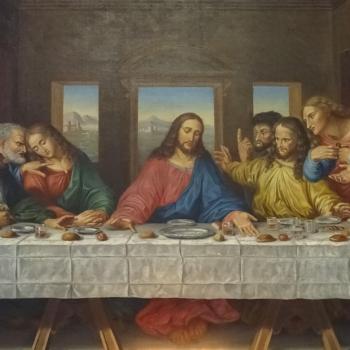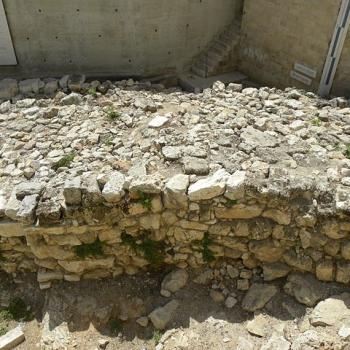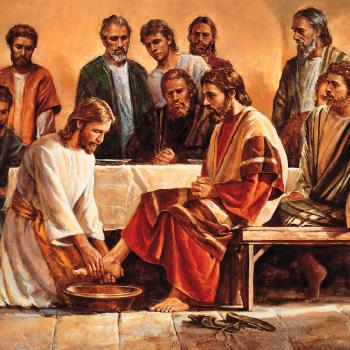This is a question that gets to even more fundamental levels of practice, both at these large events and in one's smaller practices on an individual and group level. Various events at PantheaCon are characterized as "drawing aside the veil" between "mundane reality" and the spiritual world(s). In common Wiccan-derived modern Pagan practices, circles are cast to create a barrier between "this world" and the otherworlds. While one might suggest that this is creating temporary sacred space and is therefore useful for a variety of reasons—which I would not dispute at all—at the same time, "sealing" off one's spiritual work from the everyday world also seems to be a profound limitation and a bit of a nullification of what I've always thought is a major aim of spiritual practice: namely, to improve one's daily functioning in life in its totality, not just in relation to religious matters.
(I will save, for another time, the subject of more permanent sacred spaces which the previous paragraph somewhat suggests as a worthy topic for consideration. Having used and inhabited such a dedicated polytheist temple space before and after this last PantheaCon, I have a much more vital and vibrant opinion on the matter at this point, and so I look forward to speaking about that more in the future!)
I somewhat wonder if these self-imposed, procedural limitations that many of us put on our own practices ends up impeding how our magical and spiritual activities ultimately influence our larger lives, and the life of the world more generally. While there are energetic and ritual safety, etiquette, and hygiene concerns that are quite legitimate, at the same time, wouldn't getting some of this wisdom and empowerment out to the wider community be useful and desirable on many occasions, rather than keeping it bottled up in a circle, and then grounding the whole thing out when ritual time is over? I know many will disagree with this, but I wonder it all the same . . . but if their disagreements come from entrenchment in the cosmologies and practices of their particular traditions rather than from genuine concerns of utility and efficacy, then I wonder if there is something worthy to discuss further in such disagreements.
I find myself energized by events like PantheaCon, and I find that the general effect of any period of religious "retreat" should not be a greater desire to spend time in such a space apart, as a "vacation" from everyday life, but instead a greater desire to engage with the world in all of its variety and difficulties. (PantheaCon is intense, so even extending it for a week might end up being bad for some people's health!) I certainly get fired up about activities that may take place at future PantheaCons, but I am also equally fired up about the regular holy-days that I celebrate in my ritual year, and some of the other activities that I'll be working on in the near future that relate to my spiritual practices. Yes, I find myself tired and low-in-energy for a week or more after an event like PantheaCon, but that's as much, if not mostly, a purely physical thing as it is related to anything metaphysical. I'm more than willing to undergo a bit of physical discomfort for a number of days if it will result in me having greater energy, enthusiasm, and inspiration to deal with the 360+ days of the year which are not taken up with PantheaCon, both in their specifically religious aspects and in their more everyday necessities.
I wonder if a change in vocabulary would be useful in this regard. Sure, we may have festivals, conventions, events, and retreats, but at the end of them, perhaps there shouldn't be a "closing" as much as there should be a renewed call to "go forth," to "charge forward," and to "advance."





